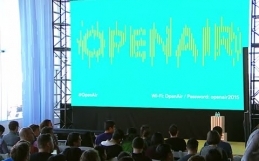Tony Pujals gave this talk at Baynode Meetup last week as part of Node night, explaining where io.js has come from with it’s key features in the shadow of a potential reconciliation between the Node.j and io.js projects and how it was started by contributors to Node as a completely community driven project which has listened to what the community wants in terms of stability, transparency, support, localisation and embracing ongoing standards whilst encouraging participants to contribute to the io.js roadmap at GitHub.
One of the features of io.js is semantic versioning where version numbers are updated to reflect versions, revisions to versions and changes as part of the stability policy on top of having three different release channels including next generation with ES6/7, Pujal explains, “this is going to help lower the barrier to a lot of people out there who have been paying attention and very interested in Node but for whatever reason, haven’t found JavaScript to suit their taste, ECMAScript6 and ECMAScript7 are pretty exciting, ES7 which I can’t wait for bring Async and Await to JavaScript which means no more callbacks, that’s a big win.”
This intro also explains how io.js enables a large ecosystem of debugging and tracing tools rather than putting tools into Core itself as well as the Stream Working Group created to fix existing compatibility issues and improve performance as well as giving an overview of long term support.
More than thirty language communities have already registered with io.js so far to address localisation to improve the international experience for using io.js and create a dynamic and indepnedent community regardless of what happens with Node.js.




